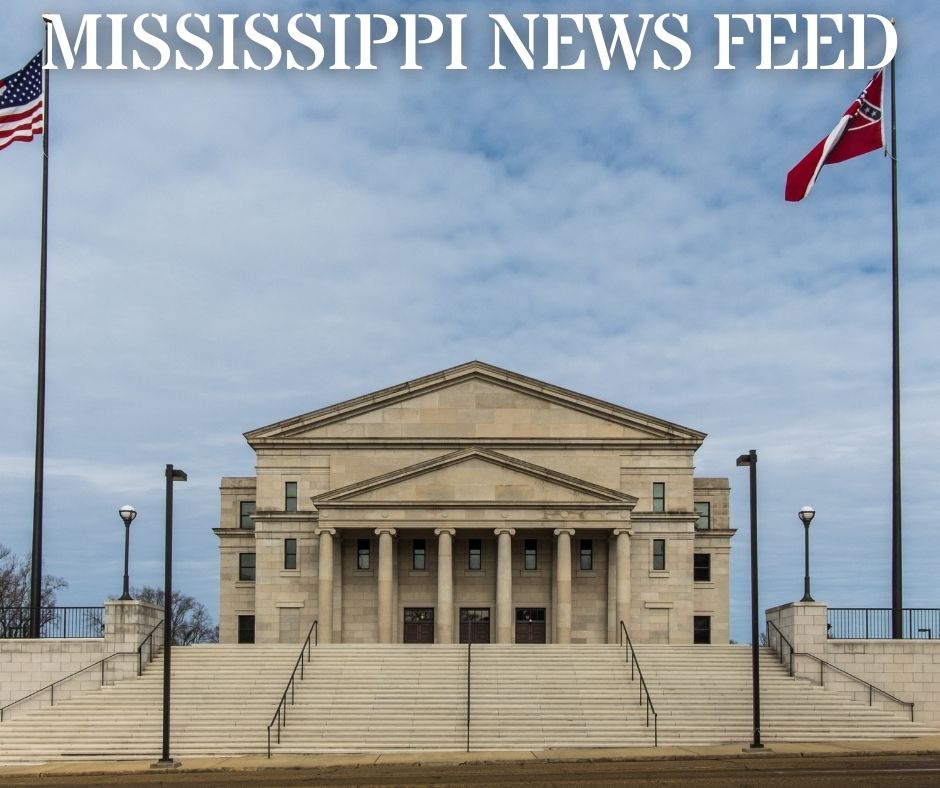Mississippi Today
Mississippi Sports Hall of Fame announces Class of 2025


The Mississippi Sports Hall of Fame Tuesday announced its 2025 induction class, and it is star-studded with championship coaches and athletes from football, baseball, basketball and golf.
In alphabetical order, the 2025 inductees are:
- Scott Berry, baseball coach, at first Meridian Community College and more famously at Southern Miss, where his teams won 10 conference championships. Combined record as a head coach: 500 victories. At Southern Miss his teams won 528 games, lost 276 and tied one. They won 10 conference championships and he was five times a conference coach of the year.
- Steve Freeman, Mississippi State and NFL football star and longtime NFL official, who is among the career pass interception leaders at both State and for the Buffalo Bills. He was one of the key cogs of State’s 1974 Sun Bowl team that won nine games and was one of the leaders of a Bills’ defense that was the NFL’s best in 1980.
- Mike Justice, high school football coach. His teams won 297 games and lost only 98 over 35 seasons. He won championships at virtually every level of high school football. His 1999 Madison Central team is generally considered one of the best — if not the best — in Mississippi history.
- Dexter McCluster, Ole Miss and NFL running back/kick returner who made All-SEC and All American for the Rebels and then played eight seasons in the NFL.
- Derrick Nix, Southern Miss running back. Nix, who also coached collegiately at Southern Miss and Ole Miss and is currently the offensive coordinator at Auburn, was one of the all-time greats at Southern Miss, despite playing much of his career with a life-threatening kidney disease.
- Steve Rives, high school and Delta State basketball coach, whose teams won more than 700 games. At Jackson Prep, his teams won 260 games while losing only 23. At Delta State, Rives’ coaching record was 388-188.
- Robbie Webb, golfer and golf teacher, who will be inducted posthumously. After at outstanding college career at Southern Miss, Webb became the longtime pro at Canton and Deerfield country clubs. Webb taught and coached many future college golfers and amateur and professional champions.
- Mo Williams, basketball standout in high school, college and NBA, now the head basketball coach at Jackson State. Williams was a McDonald’s All-American at Murrah before playing two years at Alabama and then 13 years in the NBA. Williams averaged 13 points and five assists a game for his 13-year pro career.
Clearly, it’s an outstanding class, which includes several sports heroes. I have had the good fortune to cover all as a journalist and have fond memories of each. What follow are some stories you may not know:

As a junior golfer growing up in Gulfport, Webb played often with Mississippi Sports Hall of Famer Mary Mills, who would go on to win nine LPGA golf championships, including three majors. Later on, Mills played No. 1 on the Millsaps men‘s golf team when Webb was playing No. 1 at Southern Miss. In a dual match once at the old Millsaps golf course, Mills led Webb one-up at the nine-hole turn. Southern Miss coach B.O. Van Hook chided Webb: “Hell, Webb, you gonna let a girl beat you.” Webb promptly took his golf bag off his shoulders and handed his clubs to his coach, saying, “Here, Hook, you try her…”

Mo Williams will be remembered as one of Mississippi’s most accomplished basketball players in history, but probably could have played professionally in baseball or football as well. Says John Richardson, the former Ole Miss football player who coached Williams at Chasten Middle School and now works as a jack-of-all-trades at the MSHOF museum, “Mo could have been a great quarterback in the SEC or probably a Major League shortstop. He was just so gifted and worked so hard at anything he tried. He was my quarterback at Chastain and we were undefeated. He could throw it or run it and nobody could stop him. I was a little disappointed when he chose to concentrate on basketball, but I’d say it worked out OK for him.”
I covered state championship victories for Justice both at Louisville and Madison Central. In a quick interview after his undefeated 1999 Madison Central team ransacked Provine in a state championship game, I asked, already knowing the answer: “Mike, do you know how many passes y’all threw tonight?” He thought for a couple seconds and then answered: “Well, I know if we threw one it was a damned audible.” They threw none.

McCluster originally committed to play football at South Florida before a late recruiting visit from then-Ole Miss coach Ed Oregon. Said McCluster: “I’ll never forget it. We were playing football, using a couch pillow for the ball, in my living room. Coach O would fake a handoff to me and throw a pass across the room to my mother. He sold me, sold my whole family. He told me I could be Reggie Bush at Ole Miss. That man could recruit.” And Dexter McCluster surely could run.
Before Tuesday’s press conference, I knew Steve Rives won a whole bunch of basketball games both in high schools and at Delta State. I knew coaches around the state considered him a master strategist and motivator. What I did not know is this: At Delta State, Rives was 8-0 vs. Mississippi Sports Hall of Famer Davey Whitney, one of my favorite all-time coaches and people. I guarantee you this: Nobody else, anywhere, can say that.
Nix was recruited by virtually every football power in the country but chose Southern Miss because his brother Tyrone played and coached there and because Jeff Bower promised him he could play running back, whereas Alabama, Auburn, Florida and others were recruiting him primarily as a linebacker. He became surely one of the greatest backs in USM history and surely would have made millions in the NFL if not for the kidney disease that almost killed him. “Derrick Nix had it all,” Pittsburgh Steelers scout Dan Rooney once told Sports Illustrated. “He reminded me of Deuce McAllister. He had a gliding style, so strong and fast. He was a can’t-miss prospect, the kind any NFL team would love to have.”
Steve Freeman has retired as an NFL official, but his son, Brad, the former Mississippi State baseball star, still officiates in the league. Asked if he misses it, Steve replied, “Nah, man, I am too old for all that travel. At 67, I looked around and noticed most of the guys were 25 to 30 years old. I knew it was time for me to go to the house.” Both the Freemans have officiated Super Bowls.
Over the years, Scott Berry has reminded me of Mississippi baseball legend Boo Ferriss in so many ways, most of them involving character and integrity and how much he cared about his players. One other similarity was how the two men manicured their baseball fields, at least until Southern Miss switched to artificial turf. Like Ferriss, Berry tended to the baseball field, making sure every blade of grass and every speck of dirt was just so. Once, when his daughter Kathryn Grace went to work with him, and watched him tend the field so painstakingly, the little girl asked him, “Daddy, is this your garden?” It really was, and on it Berry grew winners. He retired in 2023 after his seventh straight 40-victory season at a time when no other Division I program in the country had more five.
The Class of 2025 will be inducted in ceremonies next August.
This article first appeared on Mississippi Today and is republished here under a Creative Commons license.
Mississippi Today
On this day in 1901


Oct. 16, 1901

President Theodore Roosevelt invited Booker T. Washington, founder of the Tuskegee Institute who was perhaps the best known African American of his day, to a meeting in the White House. When the meeting went long, the President asked Washington to stay for dinner, the first Black American to do so. The President’s act drew harsh criticism from many white Americans.
“The outrage was just unbelievable,” said Deborah Davis, author of “Guest of Honor: Booker T. Washington, Theodore Roosevelt, and the White House Dinner That Shocked a Nation”.
“‘Dining,’ and I put it in quotation marks, was really a code word for social equality.”
That outrage continued, she said. “There was hell to pay, first weeks, then months, then years, then decades. This story did not go away. And, you know, an assassin was hired to go to Tuskegee to kill Booker T. Washington. He was pursued wherever he went. Theodore Roosevelt was criticized in ways that presidents were not criticized. There were vulgar cartoons of Mrs. Roosevelt that had never been done before. This was all new territory.”
This article first appeared on Mississippi Today and is republished here under a Creative Commons license.
Mississippi Today
Attorney General Fitch sides with Idaho in abortion lawsuit

Mississippi Attorney General Lynn Fitch filed another brief in support of the argument that states with strict abortion bans should be able to deny emergency medical care to pregnant women if that care involves an abortion.
The filing in the Idaho case is called an amicus curiae brief, which allows interested parties not directly involved in a court case to submit legal documents voicing their opinion.
The case began when the Biden administration sued Idaho for barring abortions when a pregnant woman’s health is at risk.
Fitch added Mississippi to the amicus brief in 2022, immediately after the Dobbs decision overturned the constitutional right to abortion. Nineteen other states now stand with Mississippi, according to the newest court filing.
Fitch’s office declined to comment for this story.
At the heart of the case, explained Mary Ziegler, one of the country’s preeminent experts on abortion law and a professor at UC Davis School of Law, is a discussion of health versus life – which she says is less of a philosophical distinction and more of a political strategy.
“There are plenty of things that go wrong in pregnancy that can really affect your health that aren’t going to necessarily imminently kill you. But if you’re coming from a movement perspective, you see all these health justifications basically as loopholes that people are exploiting,” she said. “So, some states responded to that anxiety like Texas by having a health exception but having it be very, very, very narrow, and other states like Mississippi responded by just not having a health exception at all.”
In fact, national health policy organization KFF does not consider Texas’ health exception – to prevent “substantial impairment of major bodily function” – to be an exception at all. Mississippi is one of six ban states which does not have an exception for the health of the mother.
Arkansas, Idaho, Oklahoma, South Dakota and Texas are the other five, according to KFF. All six have exceptions to protect the life of the mother.
The federal law at odds with these state bans is called EMTALA, or the Emergency Medical Treatment and Active Labor Act, which requires medical providers to stabilize everyone entering the emergency room before discharging or transferring them. The Biden administration argued that treatment should include abortion and should apply to mothers in ban states – if the mother’s pregnancy poses a risk to her health.
These 20 states, including Mississippi, that have joined the “friend of the court” brief have “a profound interest in preserving the federalist structure, their power to regulate for the welfare of their citizens, and state laws adopted by citizens’ elected representatives to protect unborn children from intentional destruction,” according to the brief.
While the argument of the amicus brief relies heavily on the principle of state rights, it also presents several anti-abortion defenses, including that doctors should not be allowed to prioritize the health of women over unborn children.
“That EMTALA imposes obligations on hospitals to pregnant women does not allow hospitals to ignore the health of unborn children,” the brief reads. “Hospitals cannot ‘pick and choose’ between their dual obligations. They must stabilize both women and unborn children.”
But allowing states to treat life and health differently, Ziegler said, doesn’t create a distinction as much as it causes confusion.
“If you’re going to lose an organ or be permanently disabled – does that fall under life exception or not? And some states say ‘well, yeah, our life exception doesn’t require you to be imminently dying, it just requires that there be a threat to your life, and certain organ damage could qualify.’ But it’s also sort of unclear.”
After Mississippi’s abortion ban took hold in July 2022, the state’s number of abortions plummeted to nearly zero – despite the fact that Mississippi’s ban has two exceptions: to protect the life of the mother, and cases where the pregnancy was caused by rape and reported to law enforcement.
Cases like Ashley, the 13-year-old Delta girl TIME magazine wrote about who was raped and forced to carry her baby to term, show that the exceptions can be theoretical.
Only four abortions were performed in Mississippi in 2023, according to data from the Mississippi State Department of Health.
If the Supreme Court votes in favor of the states, Ziegler says it probably wouldn’t change much for a state like Mississippi. If, however, the Supreme Court votes in favor of the Biden administration, it could change the landscape – not of abortion generally, but in those instances where a woman goes to the emergency room for pregnancy complications and doctors are deciding if they can legally treat her.
“If the Supreme Court ultimately said that EMTALA does cover a universe of physical emergencies that are not imminently life-threatening, and here are some of those examples, it would be very hard for Mississippi prosecutors to go after anyone who performed procedures in those circumstances,” Ziegler said.
A similar case is playing out in Texas.
The Idaho case is currently awaiting an oral arguments hearing in December, after which the 9th U.S. Circuit Court of Appeals will issue an opinion. If appealed, it will return to the Supreme Court.
This article first appeared on Mississippi Today and is republished here under a Creative Commons license.
Mississippi Today
‘In a panic’: USM faculty vote no-confidence in program review

Faculty at the University of Southern Mississippi are pushing back on an administrative plan to cut low-enrolled programs.
Earlier this month, the faculty senate voted no-confidence in the program review process that President Joe Paul announced earlier this school year as part of his administration’s efforts to afford future faculty pay raises.
The vote came after the administration shared a list of dozens of programs that could be cut or consolidated, such as bachelor degrees in criminal justice and philosophy, graduate programs in public relations, mathematics and computational science, and multiple music and theater programs.
The process for reviewing this list of programs was determined by the provost, Lance Nail, and will be based on a data-based analysis that looks at enrollment and program revenue. Nail’s office will meet with the deans and school directors to determine the future of these programs, and will make a recommendation on whether a program should stay with a corrective action plan, be consolidated or be cut.
That’s a problem for faculty, who say that any matters affecting teaching and learning at the research institution in Hattiesburg should be conducted by the people who know it best — the faculty, not the administration.
“As I explained to our administration this month and in prior meetings, other faculty and I probably have very strong opinions about who should be coaching football at USM,” Josh Bernstein, the faculty senate president, said during the Oct. 4 meeting. “We also have thoughts on recruitment and enrollment or how to oversee the finances of the university or what kind of lasagna should be served at the fresh, but it is not our job to be the primary advisers on those things.”
Bernstein went on to call a program review process that did not have faculty input dictatorial, dangerous and “a disservice to students.” The English professor added that the faculty senate had requested more involvement in the process over the course of at least five meetings with the administration but now, morale was tanking.
“Bluntly, I said faculty were in a panic,” Bernstein said.
In response to the no-confidence vote, the university’s administration said that faculty’s involvement in the process could not come at the exclusion of the administration and that it listened to and acted on the senate’s concerns.
“Faculty in affected degree plans will have, and in many cases already have had, direct
involvement in discussions about the future of their degree plans,” the administration’s response states.
The president, Joe Paul, previously told faculty his goal is to help the tuition-dependent university afford future raises and remain solvent as it works to reverse years of declining enrollment.
Meanwhile, the third-largest university in Mississippi is also dealing with inflation, escalating property insurance, aging facilities and increased competition for a declining pool of high school graduates going to college.
Layoffs are a possibility, according to documents the administration recently shared with faculty about the program review process.
“While layoffs are a possible outcome of this process, the committees, councils and administration will remain mindful of the impacts of these decisions on faculty and staff,” a white-pager stated. University policies will be followed if layoffs become necessary.”
Before the vote was taken, Nail attended the faculty senate meeting with Doug Masterson, the senior associate provost for institutional success. Masterson took questions about a report he had recently shared that determined which programs were on the administration’s “red light list.”
The data analysis showed how more than 35 programs were or were not financially contributing to the university, among other data points. Not all programs were in the red but some, like a doctoral degree in computational science, cost the university $1,070 per credit hour.
“Those numbers are tied to people, and those people are graduates,” Masterson said. “It’s not just a number. It’s a number with a person and an interest in a program.”
Some unquantifiable factors the administration will look at include how the degree serves USM’s mission or engages with the community.
“Philosophy has been a program that has continuously not met our enrollment requirements,” Nail said. “That’s been put on stipulation on a rolling basis because it has been deemed critical to the university’s mission.”
One aspect of the process faculty took issue with is that USM’s requirements for program enrollment is higher than IHL’s. The review looks at cumulative graduates over a three-year period, but USM’s baseline is twice what IHL requires.
Nail noted that some of the university’s programs were already in the process of creating plans to boost enrollment and graduation numbers because they had been flagged by IHL due to the recent drop in student population.
“The rapid decline in enrollment is triggering a lot more of these reviews than we’ve ever had before,” Nail said. “When your enrollment is down 12-13% over three years, all of a sudden that starts to flow through and the graduation numbers decline.”
USM has directed faculty who will be required to revise their degree plans to evaluate the market demand for their program based on the Bureau of Labor Statistics or other sources of potential job growth in Mississippi.
“The degree plan should prepare students for their future careers, graduate school or professional programs, and to adapt to changes in the job marketplace,” Masterson’s report states.
The fate of the least-enrolled programs will be determined by the end of the semester, according to the white-paper. The process will repeat in the spring for programs that meet IHL’s minimum standards, but not USM’s.
This article first appeared on Mississippi Today and is republished here under a Creative Commons license.
-
The Conversation7 days ago
Machine learning cracked the protein-folding problem and won the 2024 Nobel Prize in chemistry
-
228Sports7 days ago
The Picker Trying To Steer Clear Of Nick Saban’s Famous ‘Rat Poison’ Concept
-
Mississippi News6 days ago
Two Jackson students injured after wrecking teacher's car: police
-
News from the South - Texas News Feed4 days ago
Human remains found in freezer identified as teen last seen in Harris County in 2005
-
News from the South - Florida News Feed5 days ago
Tampa residents try to navigate floodwaters left behind by Hurricane Milton
-
Mississippi News3 days ago
Daylight saving time ends soon: What if we didn't 'fall back' this year?
-
News from the South - Alabama News Feed5 days ago
North Alabama Actor Talks Getting Back to Stage After Battle with Cancer | Oct. 11, 2024 | News 19 a
-
News from the South - Tennessee News Feed2 days ago
Woman accused of shooting, killing boyfriend in Murfreesboro









































